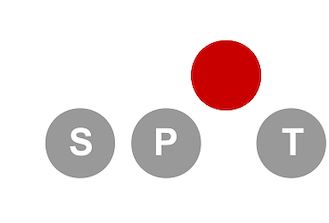This year the IDE+A team was very active at Genetic and Evolutionary Computation Conference (GECCO).
GECCO: high-quality results in genetic and evolutionary computation
The Genetic and Evolutionary Computation Conference (GECCO) presents the latest high-quality results in genetic and evolutionary computation since 1999. Topics include: genetic algorithms, genetic programming, ant colony optimization and swarm intelligence, complex systems (artificial life, robotics, evolvable hardware, generative and developmental systems, artificial immune systems), digital entertainment technologies and arts, evolutionary combinatorial optimization and metaheuristics, evolutionary machine learning, evolutionary multiobjective optimization, evolutionary numerical optimization, real world applications, search-based software engineering, theory and more.
In addition to the organization of the “Evolutionary Computation in Practice” (ECiP) track, the GECCO Industrial Challenge was held again similarly to many previous years. Furthermore, several members of the IDE+A team presented their scientific contributions at GECCO.
Poster Paper: “Resource Planning for Hospitals Under Special Consideration of the COVID-19 Pandemic: Optimization and Sensitivity Analysis”
One of those contributions was a poster paper from current bachelor and master students of the institute, namely M. Dröscher, A. Gür, A. Hinterleitner, D. Peeva L. Reese, N. Rehbach, A. Sen, and A. Subbotin. The paper was published in the ACM Digital Library in the “Proceedings of the Genetic and Evolutionary Computation Conference Companion”, and is freely accessible via https://doi.org/10.1145/3449726.3459473 (open access).
The abstract of this publication reads as follows:
Pandemics pose a serious challenge to health-care institutions. To support the resource planning of health authorities from the Cologne region, BaBSim.Hospital, a tool for capacity planning based on discrete event simulation, was created. The predictive quality of the simulation is determined by 29 parameters with reasonable default values obtained in discussions with medical professionals. We aim to investigate and optimize these parameters to improve BaBSim.Hospital using a surrogate-based optimization approach and an in-depth sensitivity analysis.

Feedback from the Students
Here are three statements from our students about their impressions at GECCO.
GECCO was a nice opportunity to represent our work, to see other researches, and get to know people all around the world who share common interests. It would make me glad if we had inspired others or shared some useful knowledge with them. Despite the odds I find the effort of the GECCO staff stunning, trying to make things as interactive as possible. For sure it would create a different atmosphere, if we were to gather on site with all attendees. Looking forward for it in the future!
Alpar Gür, BA student at TH Köln
GECCO was the first scientific conference I attended. Although the circumstances due to the pandemic were complicated, the GECCO team came up with a good solution.
Nicolas Rehbach, BA student at TH Köln
The whole conference was offered online and was accessible via Whova, Zoom, and Gather.
This eased getting in touch with attendees around the globe and made it possible to talk privately.
Therefore, we were able to attend presentations of papers and posters online while still staying in touch with the presenter.
I took a lot away from the conference and I am glad that we also had the oppertunity to present our poster and receive some feedback.
GECCO was my first time experience attending an academic conference. In the beginning, I had my doubts about the effectiveness of virtual conferences, but with “Gather”, a virtual game-like environment and the all-in-one event application “Whova”, it was surprisingly well constructed and well managed. It was refreshing to hear so many new creative ideas, as well as the discussion and exchange of scientific concepts. It made me more motivated to do further pursue and continue my academic work.
Amrita Sen, MA student TH Köln











